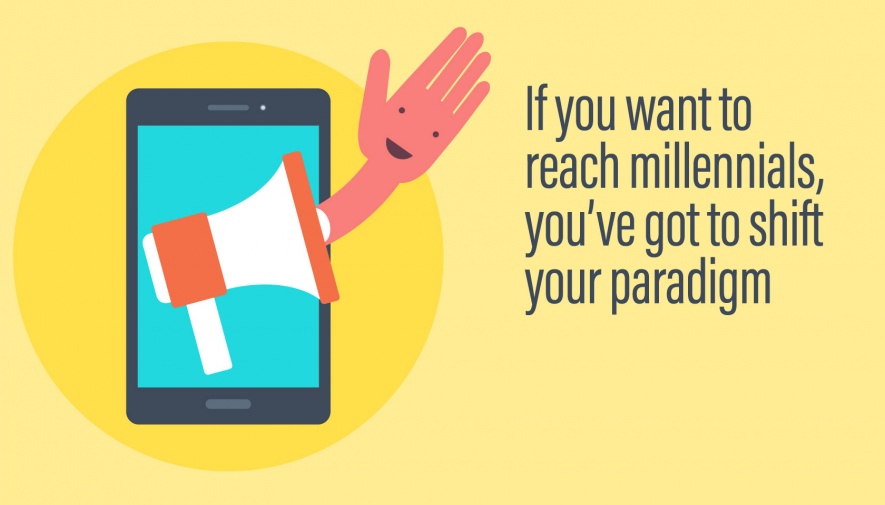Taking Into Account Millennials’ World View When Marketing To Them
By Ann Byne
 If you’re not marketing to millennials, you’re missing out on the largest sector of the population who by 2020 will possess spending power of $1.4 trillion. Before targeting millennials, it’s important to understand that this generation thinks differently, and above all values “experiences” over things.
If you’re not marketing to millennials, you’re missing out on the largest sector of the population who by 2020 will possess spending power of $1.4 trillion. Before targeting millennials, it’s important to understand that this generation thinks differently, and above all values “experiences” over things.
Born between 1981 and 1995, millennials are the generation that have grown up with the Internet, rally for social justice, navigate the world through their smart phones, and like every generation before them, strive to be different from the predecessors.
What millennials crave – and deem to be very “woke” – are tactile experiences.
What millennials crave – and deem to be very “woke” – are tactile experiences. Here’s a case in point. My millennial nephew and his fiancé decided to chuck the traditional gift registry and replace that with a “list of experiences” they wanted guests to purchase for them. Why? They told me they wanted to connect the memory of an experience with the person who chose the experience for them. Things, they said, just matter less. They’re more disposable than memories.
In 2014 a study by Harris Group found 72 percent of millennials preferred spending more money on experiences than on material things. Millennials show a preference to support brands that give them a memorable, feel-good experience. If brands are marketed toward “an experience” rather than as items to be bought, the brand integrates itself into millennial culture.
It helps to understand how this generation makes purchases. They use ad blockers when using search engines, stream their entertainment and are always multitasking. They don’t think of a store as a place with brick and mortar. A store sells stuff, and the largest store on earth is Amazon. They most ubiquitous taxi company is Uber. On CBS This Morning, Airbnb CEO, Brian Chesky shared that their Airbnb experience listings is growing 10 times faster than their core rental business.
Millennials incorporate the shared experience when they choose Amazon, Uber and Airbnb – in fact the words are practically verbs to this generation. They google everything (mom and dad are no longer the experts). They crowd share. They gauge their world through likes and hearts – it is essentially the way millennials have been raised to feel like they are part of something greater. Marketers need to emulate that experiential phenomenon to connect with millennials.
For millennials, the heartbeat of marketing pulses through social media, with Instagram and Snapchat snapping up a significant portion of their attention span. Some 34% of Instagram’s total user-base is made up of millennials, and 64% of people aged 18 to 29 used Instagram as of January 2018. The market share of these social platforms continues to rise.
To be successful, marketers need to dig deeper. Focus on experiences and interactivity over hard sells. Tell a great story they can relate to and share, remembering millennials can detect a con a mile away. And if you want to really speak to millennials, incorporate a do-good message. Millennials believe social causes define them, and they align their loyalty with brands that are good stewards of the earth and other humane causes. They want their dollars to improve not only their own experiences but the experiences of others, particularly the less fortunate.
Ann Mendelsohn Byne is founder and principal of The Byne Group, strategic branding and integrated marketing agency.










